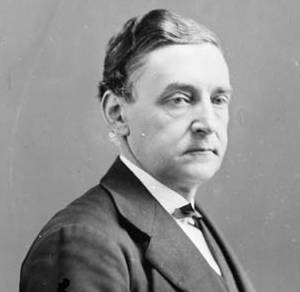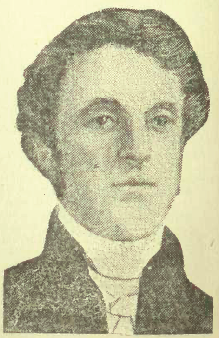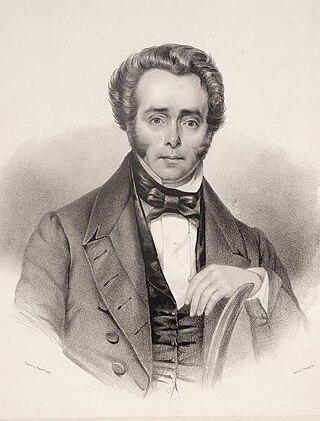Related Research Articles

Sir Hugh Allan was a Scottish-Canadian shipping magnate, financier and capitalist. By the time of his death, the Allan Shipping Line had become the largest privately owned shipping empire in the world. He was responsible for transporting millions of British immigrants to Canada, and the businesses that he established from Montreal filtered across every sphere of Canadian life, cementing his reputation as an empire builder. His home, Ravenscrag, was the principal residence of the Golden Square Mile in Montreal.

Pierre-Joseph-Olivier Chauveau was a Canadian lawyer and politician. Chauveau was the first premier of Quebec, following the establishment of Canada in 1867. Appointed to the office in 1867 as the leader of the Conservative Party, he won the provincial elections of 1867 and 1871. He resigned as premier and his seat in the provincial Legislative Assembly in 1873.

Sir Francis Hincks, was a Canadian businessman, politician, and British colonial administrator. An immigrant from Ireland, he was the Co-Premier of the Province of Canada (1851–1854), Governor of Barbados (1856–1862), Governor of British Guiana (1862–1869) and Canadian Minister of Finance (1869–1873).
Clergy reserves were tracts of land in Upper Canada and Lower Canada reserved for the support of "Protestant clergy" by the Constitutional Act 1791. One-seventh of all surveyed Crown lands were set aside, totaling 2,395,687 acres (9,695 km2) and 934,052 acres (3,780 km2) respectively for each province, and provision was made to dedicate some of those reserved lands as glebe land in support of any parsonage or rectory that may be established by the Church of England. The provincial legislatures could vary or repeal these provisions, but royal assent could not be given before such passed bills having been laid before both houses of the British Parliament for at least thirty days.

Sir Antoine-Aimé Dorion was a French Canadian politician and jurist.

Henry Sherwood, was a lawyer and Tory politician in the Province of Canada. He was involved in provincial and municipal politics. Born into a Loyalist family in Brockville in Augusta Township, Upper Canada, he studied law and was called to the bar of Upper Canada in 1828. In 1838, he was appointed Queen's Counsel. Sherwood was part of the Family Compact, the inter-connected families of strong British and Loyalist sympathies which dominated the government of Upper Canada in the early years of the 19th century

George Read Riddle was an American engineer, lawyer and politician from Wilmington, Delaware. He was a member of the Democratic Party who served as U.S. Representative and as U.S. Senator from Delaware.

Archibald Dixon was a U.S. Senator from Kentucky. He represented the Whig Party in both houses of the Kentucky General Assembly, and was elected the 13th Lieutenant Governor of Kentucky in 1844, serving under Governor William Owsley. In 1851, the Whigs nominated him for governor, but he lost to Lazarus W. Powell, his former law partner.
William Stewart was a businessman and political figure in Upper Canada and Canada West. An immigrant from Scotland, he settled in Bytown where he was active in business and public life. He was elected to the Legislative Assembly of the Province of Canada, serving from 1843 to 1847. He died in Toronto in 1856, while representing the interests of the city of Ottawa.

William Henry Boulton was a lawyer and political figure in Canada West. He served as Mayor of Toronto from 1845 to 1847, and in 1858, where in the position he was considered "a colourful figure with varied interests" - likely due to his seemingly polar opposite influences in office: "sympathies for Family Compact traditions" and the inherent righteousness of the Church of England juxtaposed to elective institutions, the "rep-by-pop" system, and his interests in republicanism and "popularism".

John Charles Rykert was a lawyer and Conservative member of the House of Commons of Canada. He represented Lincoln from 1878 to 1882 and Lincoln and Niagara from 1882 to 1891. He represented Lincoln in the Legislative Assembly of Ontario from 1867 to 1878.

Thomas Coffin, was a Canadian businessman and politician.

Sir Adam Wilson was a lawyer, judge and political figure in Canada West. He served as mayor of Toronto in 1859 and 1860 and in the Legislative Council of the Province of Canada for York North from 1860 to 1863. After his political career, he served as a judge and was named Chief Justice of the Court of Queen's Bench. At the time of his retirement, he was the longest-serving judge in Ontario and was subsequently knighted.

Jean Chabot was a lawyer, political figure and judge from Canada East, in the Province of Canada. He supported Louis-Hippolyte LaFontaine's policy of responsible government within the framework of the union of Lower Canada and Upper Canada into the Province of Canada. Chabot served twice as Chief Commissioner of Public Works with a seat in the Executive Council.

George Okill Stuart was a Canadian lawyer, political figure, and judge.

James Hervey Price was a Canadian attorney and political figure in Canada West. He was born and grew up in Cumberland, United Kingdom, and studied law at Doctors' Commons. He moved to Upper Canada in 1828 and became an attorney in 1833. He was appointed the city of Toronto's first city clerk in 1834 and the following year built a house north of Toronto that he named Castlefield. In 1836 he was elected as a city councillor for St. David's Ward in Toronto but was defeated the following year. Although he considered himself a Reformer, he did not participate in the Upper Canada Rebellion. In 1841 he was elected to the first Parliament of the Province of Canada, representing the 1st riding of York as a Reformer. He served as the commissioner of Crown lands from 1848 to 1851 when he was defeated in his reelection campaign for his seat in the Parliament. He withdrew from politics and worked as an attorney until his retirement in 1857. In 1860 he returned to Britain to Bath, and died in Shirley, Hampshire, in 1882.

Nathan Fellows Dixon was an attorney and bank president from Westerly, Rhode Island. The son of Nathan F. Dixon and father of Nathan F. Dixon III, he was best known for his service as a United States representative from Rhode Island from 1849 to 1851, and again from 1863 to 1871.
Edmund Fuller Murney was a lawyer and political figure in Upper Canada. He represented Hastings in the Legislative Assembly of Upper Canada from 1836 to 1841 and in the Legislative Assembly of the Province of Canada from 1842 to 1848 and from 1852 to 1856 as a Conservative member.
George Percival Ridout was an English-born merchant and politician in Canada West. He represented Toronto in the Legislative Assembly of the Province of Canada from 1851 to 1854 as an independent Conservative.
George A. Robinson was a Canadian-American physician and politician.
References
- ↑ Campbell, Clarence Thomas (1921). Pioneer days in London : some account of men and things in London before it became a city. Advertiser Job Printing Company. p. 96.
- ↑ History of the County of Middlesex, Canada : from the earliest time to the present ... Toronto: W.A. & C.L. Goodspeed. 1889. pp. 117, 233.
- ↑ Baker, Michael (2005). 100 Fascinating Londoners. James Lorimer & Company. p. 12. ISBN 1-55028-882-2.
- ↑ Miller, Orlo (1966). Gargoyles and Gentleman. Toronto: Ryerson Press. pp. 72–74.